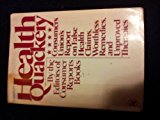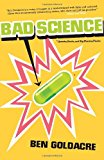Not the Mediterranean Diet
I recently noted here an article in the New York Times about a study that claimed a dramatic cardiovascular benefit in the so-called “Mediterranean diet.” The effect was supposedly so large and obvious that the study’s authors put an early end to the research out of ethical concerns. Presumably, the benefit of the Mediterranean diet was so clear that allowing the control groups to remain on relatively dangerous non-Mediterranean diets needlessly exposed them to a higher risk of heart attack and stroke.
Now Dr. Mark Hoofnagle offers a critical analysis of the research. It turns out that none of the groups under study were following anything like what anyone would call the Mediterranean diet. The group that was described as following a “low fat” diet was actually eating a high fat diet. The study was stopped so early that, although the population size was fairly large, there were relatively few deaths from any cause, so the conclusions are ambiguous. Therefore Hoofnagle is baffled about the so-called “ethical” reasons for halting the research.
Dr. Hoofnagle teased all this out by perusing the tables of data in the paper’s appendices, a level of scrutiny rarely undertaken by science journalists. This is the latest, and a particularly dramatic, example of uncritical science reporting in the popular press, and reminds us to be skeptical when reading these second-hand reports. But it is also an example of the causes of a misplaced and defeatest strain of skepticism that we often find in people who are not very literate in science and have come to believe that there is no need to pay attention, because they encounter a random barrage of conflicting claims every week. This is especially acute in health science reporting, where such people can be forgiven for having the impression that “scientists” are regularly changing their minds about whether eating meat, or running, or believing in the supernatural is good or bad for you.
This latest episode reminds us that it is not so much that “scientists” are constantly “changing their minds.” It is more that science journalism has a fiduciary interest in creating headlines expressing definite, dramatic, and directly relevant conclusions. Even if the dogged reporter delves into caveats and subtleties in paragraph 23, most people never get beyond the headline or the first paragraph, or form their impressions from what a coworker thinks she heard on the radio while driving to the office. The fact that the actual research paper behind the popular press report reaches a far more qualified conclusion, or employs a questionable methodology, never enters the consciousness of the lay population, nor, usually, the reporters themselves, who rely more often on press releases and interviews with people bearing agendas.
The end result is that the image scientists have of their specialties, which involves irregular, error-prone, but definite and steady progress, studded by the occasional spectacular mistake or brilliant advancement of knowledge, is at odds with what increasingly seems to be the popular impression, which is that of a series of random, arbitrary, contradictory claims. There is a real danger here, as people come to believe, quite erroneously, that there is no rational way to arrange their habits in order to live longer and healthier; that it all just a matter of “opinion.” When you hear someone shrugging off a warning about a newly discovered environmental carcinogen because “everything causes cancer,” you are facing this syndrome head-on. The solution to this malaise is the same as the solution to so much else: better education.



